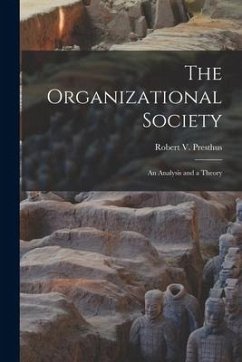
Organizational Theory and Inquiry
The Paradigm Revolution
Herausgeber: Lincoln, Yvonna S.
Versandkostenfrei!
Versandfertig in 1-2 Wochen
95,99 €
inkl. MwSt.

PAYBACK Punkte
48 °P sammeln!
The transition from viewing organizations as bureaucracies towards seeing them in metaphoric terms is a contemporary break with past organizational theory. But to investigate the similarities between real organizations and the metaphors describing their functions and context, a shift in both methods of inquiry and organizational theory must take place. This volume explores the paradigm shift at three levels: an overview of historical roots; an explication of terminology, metaphors and constructs; and the practical application of these new organizational inquiry methods, especially for actual r...
The transition from viewing organizations as bureaucracies towards seeing them in metaphoric terms is a contemporary break with past organizational theory. But to investigate the similarities between real organizations and the metaphors describing their functions and context, a shift in both methods of inquiry and organizational theory must take place. This volume explores the paradigm shift at three levels: an overview of historical roots; an explication of terminology, metaphors and constructs; and the practical application of these new organizational inquiry methods, especially for actual research practices and policy analysis applications.














